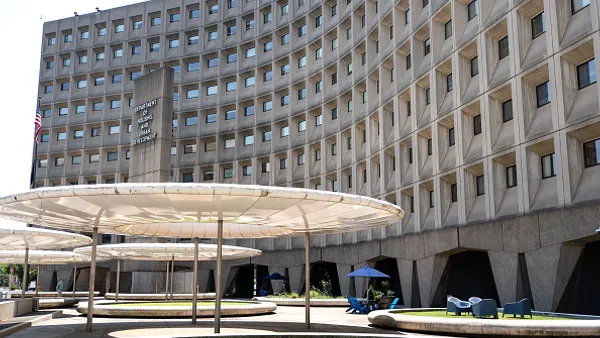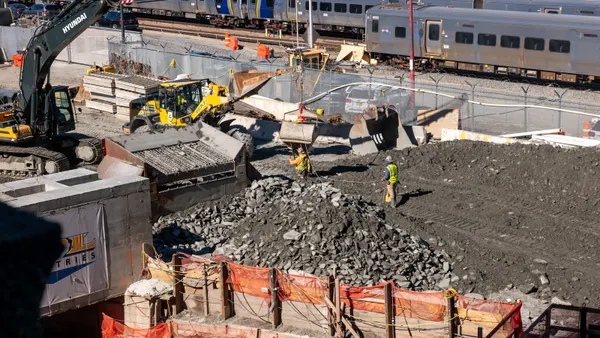Dive Brief:
- San Francisco voters this week approved ballot measure Proposition C, which will require residential developments of 25 units or more to include 25% affordable units, up from the current requirement of 12%, the San Francisco Business Times reported.
- There is a grandfathering provision in Prop. C that allows developers with completed applications to take advantage of a lower, staggered requirement depending on the date the applications were approved. The new law also includes an increase in the offsite construction-fee alternative to 33%.
- Critics of the new mandate have said it will actually reduce affordable housing because developers will now focus on projects with less than 25 units while others will find the costs of compliance too high to make larger projects financially possible.
Dive Insight:
Proponents of the new law are hoping it will be a step forward in the effort to provide enough affordable housing in a city that has seen increasingly high home prices and rents. However, the city's Housing Action Coalition estimates that 1,600 residential units in the planning stages — which don't qualify for a grandfathering exemption — could be in jeopardy under the new provision.
Affordable, or inclusionary, housing mandates have met pushback from developers and builders across the country, with some of the most high-profile cases in California. In response to a 15% inclusionary housing requirement in San Jose, CA, the California Building Industry Association (CBIA) tried to take its case against the city all the way to the U.S. Supreme Court, arguing that the rule's requirements were tantamount to a "taking" of private property and would only drive up housing costs as developers pass their losses from some units onto buyers. The Supreme Court ultimately denied a review of the CBIA's arguments.
Nevertheless, housing advocates have stressed that something needs to happen to bring down rents and home prices before residents quit the Bay Area and state altogether. A recent San Francisco Bay Area Council survey determined that more than 33% of the Bay Area's residents are pondering exit strategies because of housing costs, lengthy commuting times and the increasing cost of living, with housing the most pressing of the three. A Beacon Economics study also found that the state of California lost a net 625,000 residents between 2007 and 2014, primarily due to the rising cost of housing.












